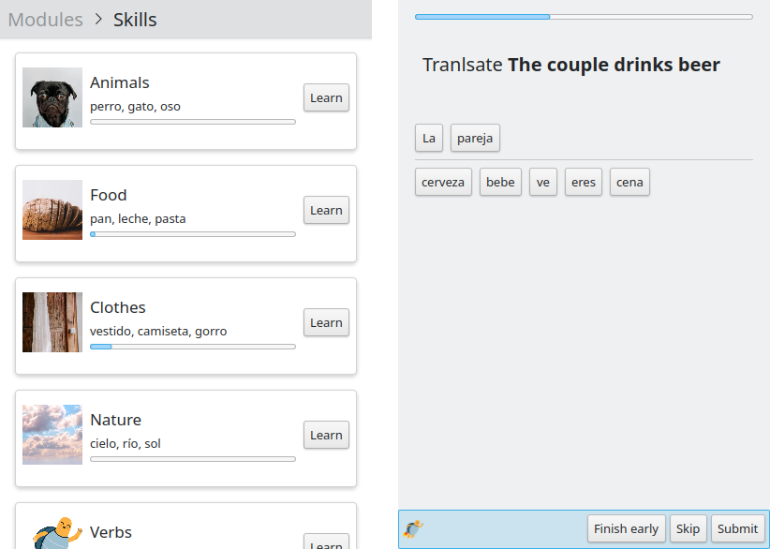Interested in Linux TUI applications? Learning how to play guitar? What about the CAGED system?
I suppose that you have already skipped this article.
Otherwise, let me introduce you to Geekar: a guitar learning application for the Linux terminal.
Features
Let's install it.
First, install fluidsynth using the package manager …
 Glossaico on Plasma Mobile
Glossaico on Plasma Mobile